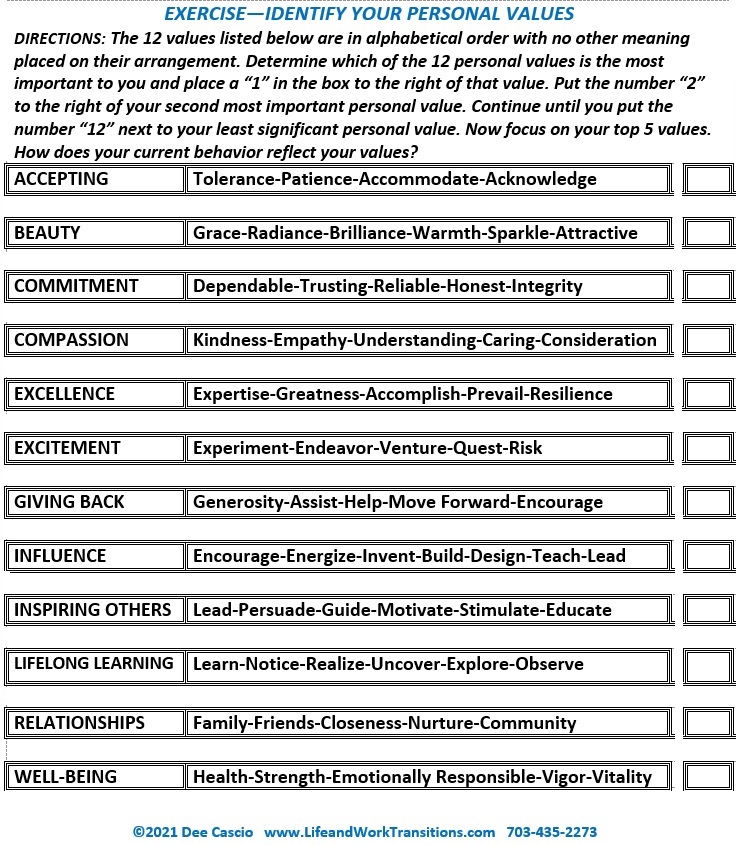Here’s how to get started with core values and defining and aligning them with your values.
Make a list of core values
Do you ever think about your core values? When I did my coach training, I was required to do a Values Inventory Exercise. Reflecting on this, I was impressed by how we explored, inventoried, and discussed this concept in our training group. This was the first time I really looked closely at my core values. Fortunately, I was able to quickly identify those core values I was living out. These included
• Having high standards in my personal and professional life
• Learning new skills, concepts, and activities
• Maintaining a healthy lifestyle by exercising, eating well, and getting enough rest
• Relating and appreciating family and friends and experiencing a sense of community
• Supporting, teaching, and encouraging others
• Volunteering my time and contributing to my community through Rotary Membership and other groups
You may have done a similar exercise or created your own “core values inventory” quite unconsciously.
• What values are included on your list?
• Are you currently living by these values?
• Do you need to explore how to incorporate a particular concept into your life?
• Who in your life is modeling a core value you want to add to your life?
Align your core values with your lifestyle
The next step is aligning your core values with your lifestyle. As a therapist as well as a Life and Work Transitions Coach, I explore the possibilities and challenges with my clients. It all begins with defining what is truly important to you then asking if your
• Ideas
• Life goals
• Planning behaviors
• Projects
are in alignment with your core values.
If there is a disconnect between core values and lifestyle, you may feel paralyzed or lacking in energy when it comes time to complete a project or reach a goal. Sticking with an idea may be hard and planning for the future may seem impossible. This is because core values that are out of alignment with your lifestyle will often lead to a less satisfying transition process than you desire.
For example, if you value family and friends yet plan to move away, will you be truly happy? You may end up moving back to reconnect with those who love and care about you. Another option is to plan to make frequent trips to your former location while building new friendships in a new place. I did this–called phasing into a new lifestyle—when I moved from upstate New York to Virginia in the 1970s.
Take my challenge
I encourage you to take time for self-reflection.
• Determine what is important to you
• Define your core values
• Get to know what will give your life meaning both now and in the future
• Decide if your current lifestyle reflects these values
• Listen closely to your thoughts, feelings, and level of motivation
Your lifestyle can reflect your values, starting now.
